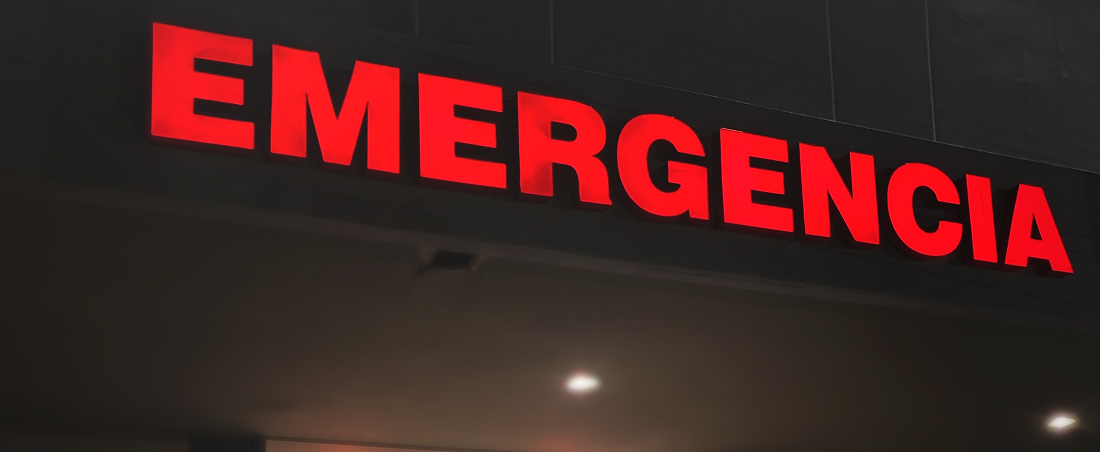- Download our Moving to Chile Guide (PDF)
Under Chile’s Ministry of Health, the Superintendencia de Salud largely manages the country’s healthcare options. Healthcare in Chile consists of a mix of public and private systems, including FONASA (Fondo Nacional de Salud), private insurance called ISAPREs and alternative specialised insurance programmes such as those for the Armed Forces.
The standards of healthcare in Chile are arguably the best in South America, and expats can expect excellent and affordable medical treatment from both sectors. That said, the quality of healthcare in Chile tends to vary regionally, with modern equipment and facilities available in Santiago and other major cities, but significantly less so in smaller towns and rural areas.
Public healthcare in Chile
Chilean nationals and legal residents have access to free and subsidised public healthcare. This is managed through the government-run FONASA scheme, with additional cover via privately run health insurers.
FONASA is publicly funded through a deduction from employees’ monthly income, and those who are unemployed may be eligible for a grant. There are also several other government offices providing niche services to the healthcare market.
Government hospitals are required to provide free healthcare to members of the population who do not have healthcare coverage. State hospitals can be crowded and waiting times long, but those in the major cities offer excellent care. This is not the case for all public hospitals, as those in more rural areas tend to have limited treatment options, and facilities are often less equipped than their big-city counterparts.
Useful links
- FONASA is the public health fund of Chile
 Private healthcare in Chile
Private healthcare in Chile
Private healthcare is popular among expats in Chile, as most expats won’t have access to free public healthcare benefits unless they have residency and pay taxes in Chile.
Most doctors in the private and public sectors alike are well trained, many of them educated overseas and able to speak English. Patients do not need a referral to see a specialist, and expats may find that the concept of a local general practitioner (GP) in Chile is not that common, as most doctors specialise in a particular aspect of medicine.
Chile offers exceptionally high-quality private care, and several hospitals in Santiago are recognised internationally.
Health insurance in Chile
Public health insurance is administered by the Chilean government and is available through the FONASA.
Various private health insurance companies in Chile allow members access to private healthcare. These are popular among expats who don’t qualify for FONASA and are called ISAPRE (Instituciones de Salud Previsional).
Because each ISAPRE covers different plans, families, single individuals and couples are likely to choose different ones and should do their own research. Banmédica, Colmena Golden Cross and Ferrosalud are some of these ISAPREs.
There are also numerous prominent foreign-owned health insurance providers that operate internationally.
Useful links
- The Association of ISAPREs in Chile (AICH) has a directory of private health insurance providers in Chile
 Pharmacies in Chile
Pharmacies in Chile
It is not difficult to find pharmacies in Chile, and many of them are open 24 hours a day. Pharmacists are usually well trained and speak English.
Many drugs that may require a prescription elsewhere are available over the counter in Chile, but these should only be taken with proper medical advice.
Expats should be sure to note down the generic names of any prescription medication they may be taking, as brand names tend to vary from country to country. When travelling with prescription medication, especially in large quantities, it’s better to be safe than sorry: clearly label all medication and carry a signed doctor’s certificate and prescription.
Health hazards in Chile
Expats can rest assured that Chile has few health hazards, and those that are present are generally well-controlled.
Tap water is mostly safe to drink, but expats should exercise caution in very remote or rural areas. On arrival, expats may experience a bout of travellers’ sickness, but this is quite normal and is simply the body adjusting to unfamiliar food and water.
When travelling around Chile, necessary precautions should also be taken against mosquitoes.
Earthquakes
Expats should be aware of the risk of earthquakes in Chile and research recommended safety procedures in case of one. Information on this is given by national and local authorities as well as large international organisations. Fortunately, building regulations mean that structures are well-designed to withstand seismic activity.
Air pollution
Santiago is known to have significant pollution issues, especially in the winter months of June through September. This can cause both eye irritation and respiratory problems, and expats are strongly advised to seek medical care if issues arise.
Pre-travel vaccinations for Chile
Expats should consult a doctor or travel clinic before relocating to Chile for the most up-to-date information regarding possible health risks.
While there aren't any specifically required vaccines, some are still recommended. Besides routine vaccinations such as polio and measles-mumps-rubella (MMR), new arrivals should consider immunisations for Hepatitis A, B, rabies and typhoid.
 Emergency services in Chile
Emergency services in Chile
Most hospitals in Chile have emergency facilities and ambulances available. Expats should be aware that not all emergency facilities are operational 24 hours a day.
Upon arrival at a medical facility, the ISAPRE and insurance provider should be contacted.
Medical air evacuation within and from Chile is possible but can be expensive. New arrivals should have additional travel and health insurance to cover the cost of air evacuation from Chile in the event of any serious emergency.
In the case of a medical emergency, dial 131.
What is private healthcare like for expats in Chile?
"Private healthcare is really good, but very expensive if you want to go to a clinic with international standards." Read our interview with Jérémie for recommendations on health clinics.
"Private health insurance is expensive and so are the clinics, but they are generally excellent quality. If you have an ISAPRE, private insurance scheme, and your scheme covers treatment in a good clinic, you will be very well taken care of." Read Nina's experiences of the healthcare system in Chile.
Further reading
►For a list of hospitals in the capital, see Healthcare in Santiago
Image credits: Emergencia by Luis Sánchez from Unsplash
Are you an expat living in Chile?
Expat Arrivals is looking for locals to contribute to this guide, and answer forum questions from others planning their move to Chile. Please contact us if you'd like to contribute.
Expat Health Insurance
Cigna Global Health Insurance.
Medical insurance specifically designed for expats. With Cigna, you won't have to rely on foreign public health care systems, which may not meet your needs. Cigna allows you to speak to a doctor on demand, for consultations or instant advice, wherever you are in the world. They also offer full cancer care across all levels of cover, and settle the cost of treatments directly with the provider.
Moving Internationally?
International Movers. Get Quotes. Compare Prices.
Sirelo has a network of more than 500 international removal companies that can move your furniture and possessions to your new home. By filling in a form, you’ll get up to 5 quotes from recommended movers. This service is free of charge and will help you select an international moving company that suits your needs and budget.
Get your free no-obligation quotes from select removal companies now!


